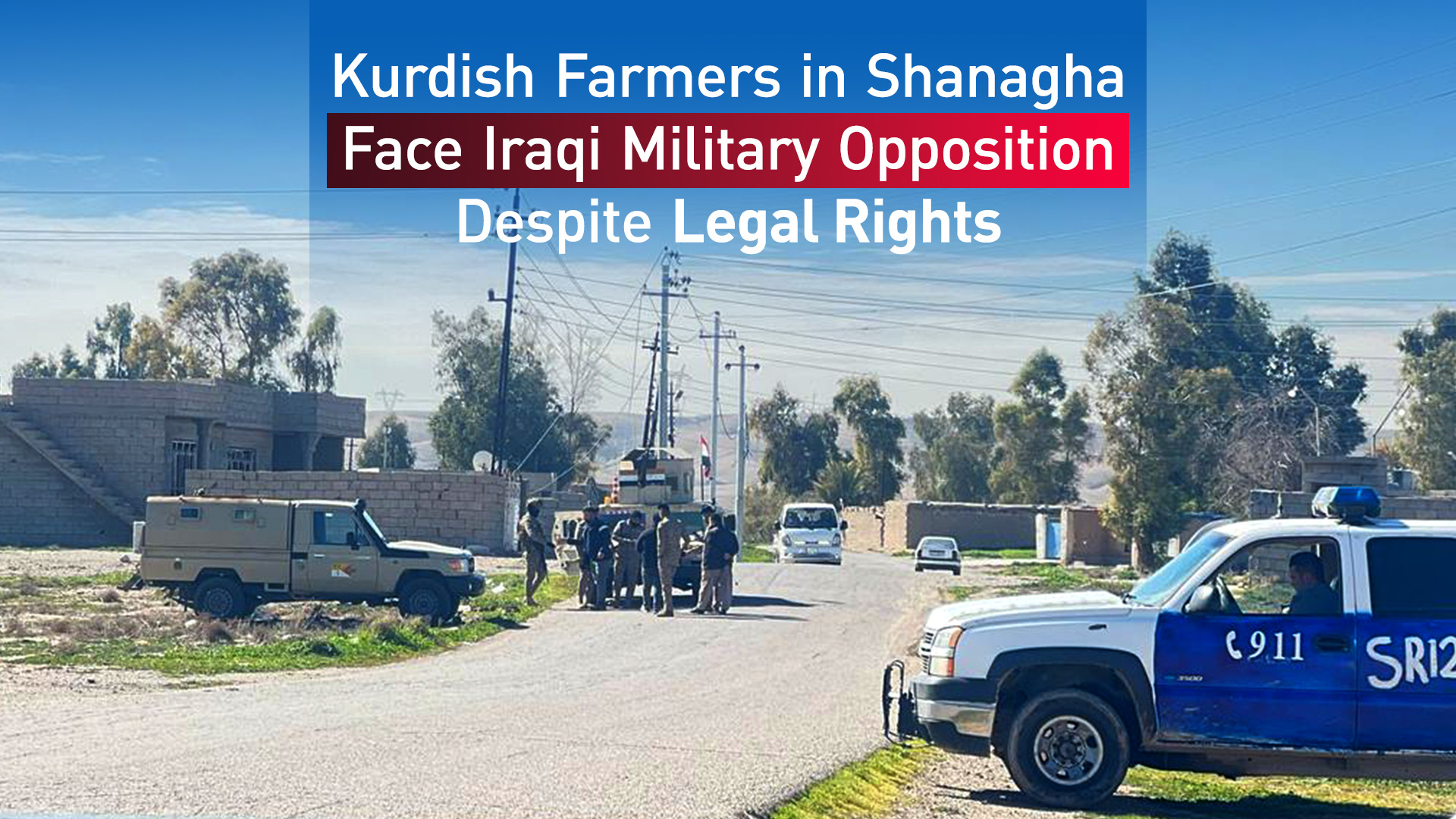Kurdish Farmers in Shanagha Face Iraqi Military Opposition Despite Legal Rights
Despite the opposition, the farmers remain resolute in asserting their legal rights to cultivate their ancestral lands.

ERBIL (Kurdistan24) – Kurdish farmers in Shanagha village, located within the Sargaran area, have begun cultivating their lands following a recent parliamentary decision to annul Baath-era decrees.
However, their efforts have been met with resistance from Iraqi military forces, who arrived with Humvees in an attempt to prevent them from resuming agricultural activities.
Despite the opposition, the farmers remain resolute in asserting their legal rights to cultivate their ancestral lands.
Mohammed Ismail, the representative of the Sargaran farmers, told Kurdistan24 that military officers explicitly warned them against farming.
However, he countered that their right to cultivate the land has been ratified by both the courts and the president, reinforcing the legitimacy of their claims.
Ismail explained that Arab residents in the region had already received compensation under Article 140 of the Iraqi Constitution, which was established to rectify demographic changes imposed during Saddam Hussein’s Arabization campaigns.
He recalled that six months ago, an agreement was reached in the presence of the former governor and parliament members to temporarily halt farming activities while compensation matters were finalized. Now that the compensation process has been completed, the farmers argue that any further obstruction to their cultivation efforts constitutes ongoing injustice against them.
One of the key grievances raised by the farmers is the disparity in treatment across different regions. Ismail highlighted that while their area, under the jurisdiction of the 8th Division, faces severe military restrictions, 25 villages under the 14th Division operate without similar interference.
He suggested that certain individuals, who had previously caused tensions with support from the former governor, may still be exerting influence despite some of them already receiving Article 140 compensation—some allegedly through fraudulent means.
A Fight for Agricultural Rights
The disputed agricultural land spans approximately 120,000 dunams, impacting multiple villages in the Sargaran area. Local farmer Dashti Agha emphasized the systematic discrimination faced by Kurdish farmers in the region, particularly affecting five villages.
He stressed that their current gathering is an act of defiance against the military blockade, asserting that there is no legitimate justification for the Iraqi army to impede civilian agricultural activities.
“The farmers are not armed militants or political agitators; they are citizens reclaiming their fundamental right to cultivate their land. This is an economic and social issue that must not be militarized,” Agha stated.
The incident highlights broader tensions regarding land rights and demographic policies in Iraq. The annulment of Baath-era decrees was intended to correct historical injustices, yet Kurdish farmers continue to face resistance in reclaiming their lands. The farmers' situation underscores the need for consistent legal enforcement and equitable treatment in land disputes.
Observers note that continued military interference in legal land reclamation efforts could escalate tensions in the region, potentially drawing greater political scrutiny. Kurdish farmers, backed by legal precedent, are urging Iraqi authorities to respect parliamentary decisions and implement justice fairly.
As the standoff continues, the farmers of Shanagha remain steadfast in their commitment to reclaiming their lands, determined not to yield in the face of military pressure.